The Master in Management Program (MiM) of Tsinghua School of Economics and Management (Tsinghua SEM) invited Wouter Peeters, Vice President of Technology & Analytics at Budweiser Brewing Company APAC, and his team to host a virtual skill seminar titled“Marching towards a Technology and Analytics Empowered Consumer Goods Company”on May 13.
Nearly fifty students from Tsinghua SEM and other CEMS member schools participated in the seminar.
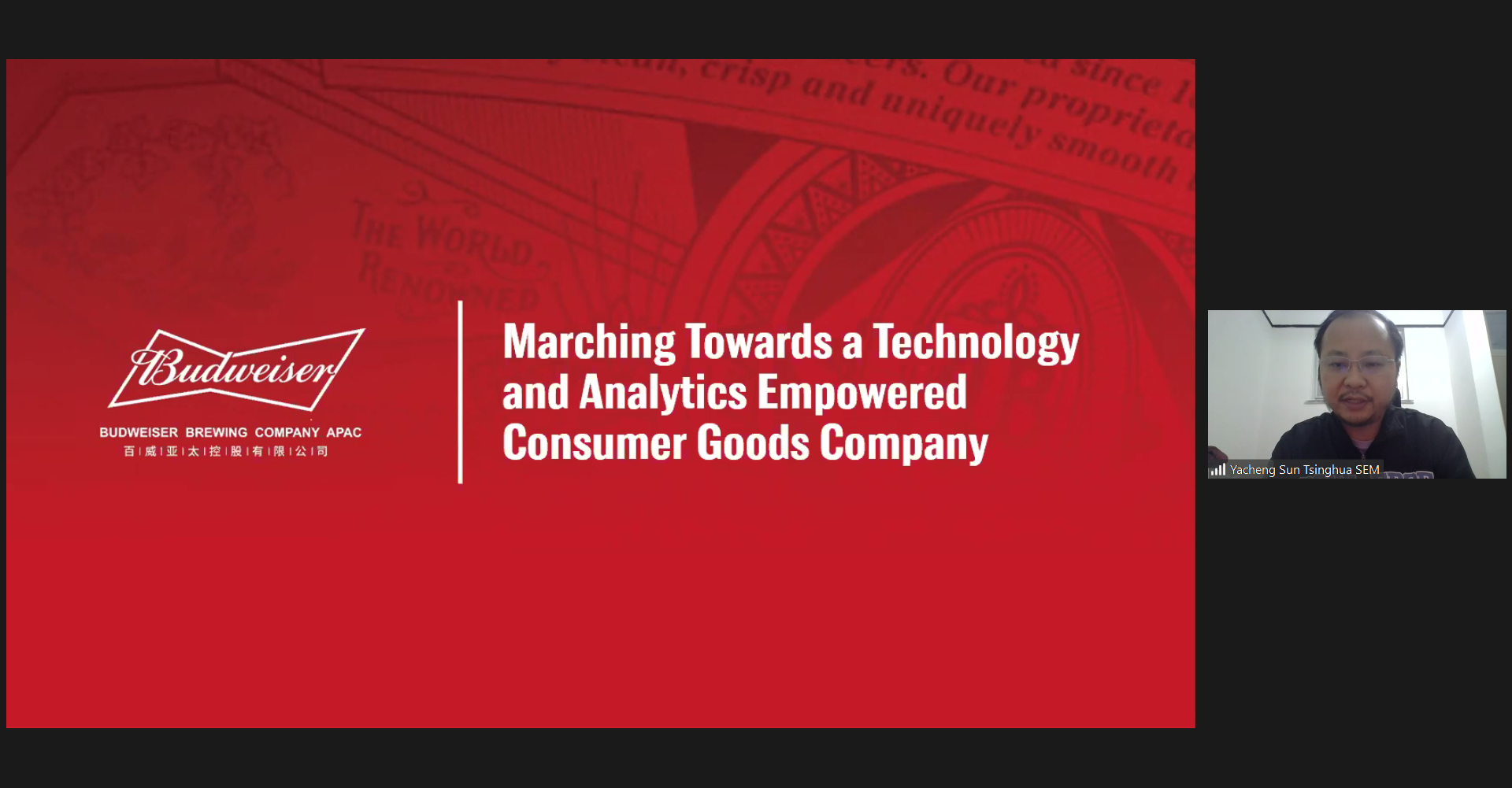
Budweiser Brewing Company APAC (InBev) is a publicly traded company based in Leuven, Belgium, committed to driving growth that leads to better living for more people in more places through brewing the best beer with the best ingredients. Its portfolio includes over 500 global beer brands, with breweries all across the world. It is the largest beer company in the Asia Pacific by retail sales value in 2018.
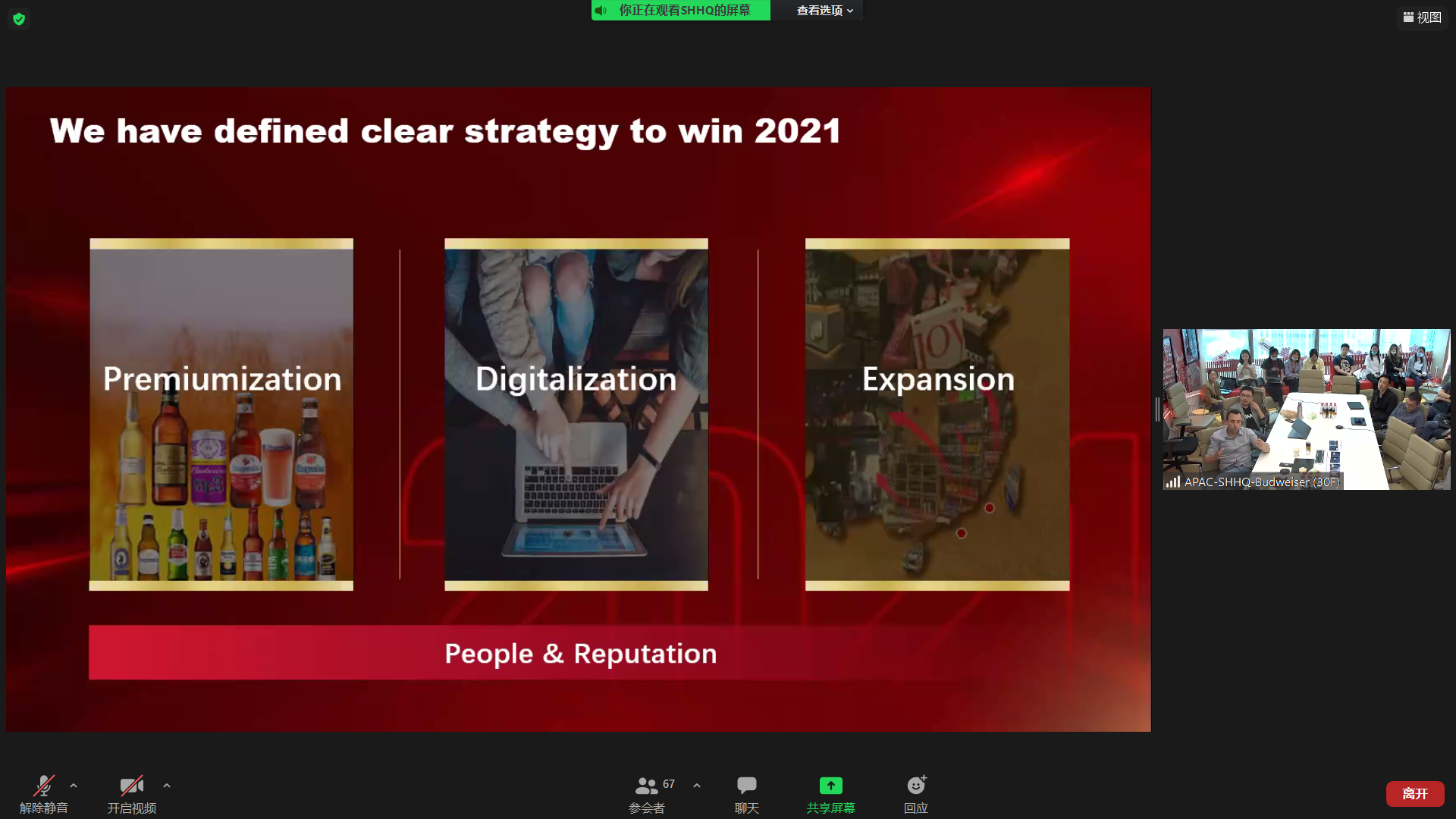
Detailed theoretical explanations and case demonstrations from leaders of the company’s Logistics team, Service and Operations team, and the Data Science team offered the students a closer look at Budweiser APAC's planning and execution of its digitization process.
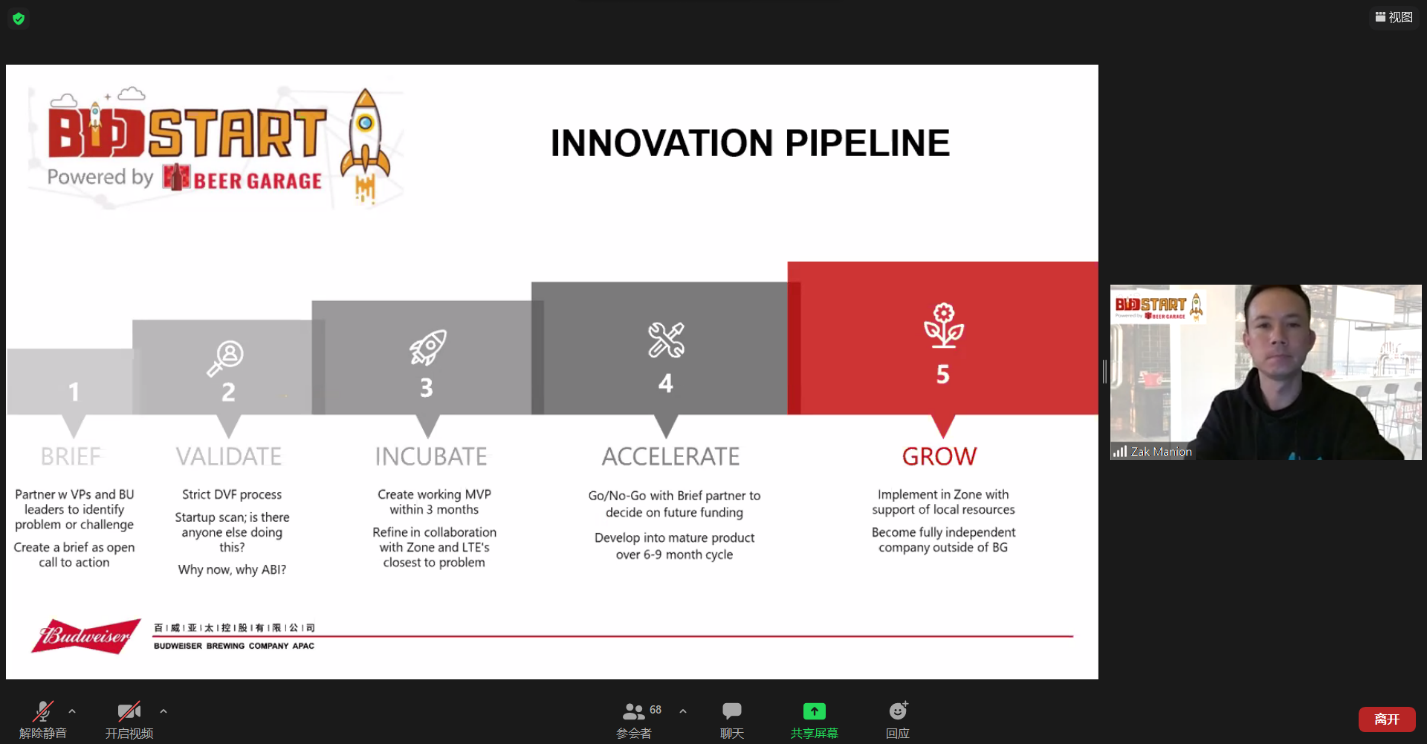
Peeters started off the seminar by giving an overview of Budweiser APAC, its overall strategy for moving towards digitization as a consumer goods company, and its top three goals of 2021: Premiumization, Digitalization, and Expansion.
He said as Asia rises to become a home to the top purchasing power countries, his company was aiming to come up with more premium brands to serve the wealthier consumers in the continent.
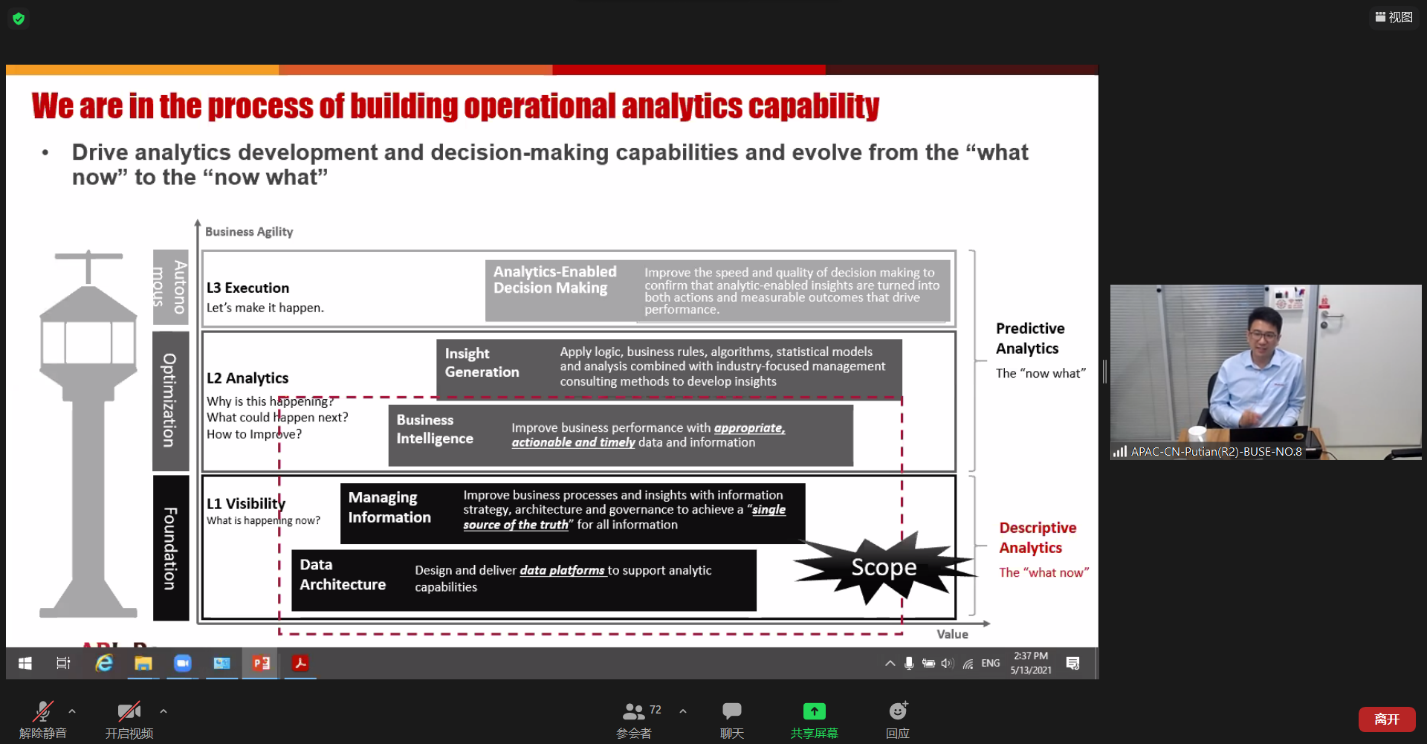
To stay competitive in the market, Budweiser attaches the utmost importance to the digitization of the company and its foray into new markets.
Zak Manion of the Innovations and Analytics team talked about the launch of BudStart in April 2021, an initiative that helps fund and mentor startup entrepreneurs to grow their ideas into successful businesses within Budweiser by offering them functional, technical and legal supports and helping them build networking corporate connections.
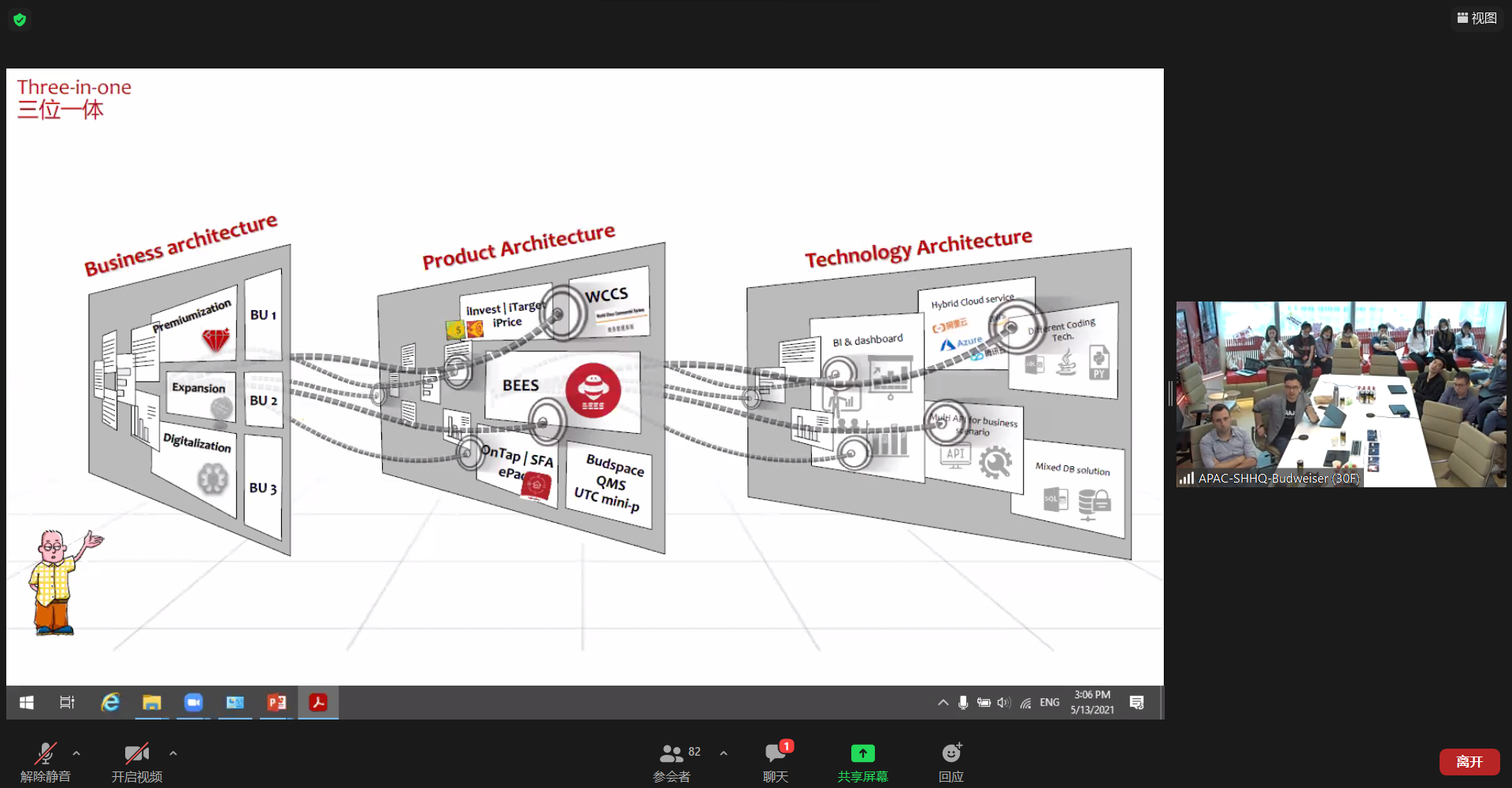
Felix Dai, of the Service and Operations back-office, said that the digitalization of the company's global business services and the business process has enabled the company to utilize data analytics to react faster to people's needs and drive the company's growth—both in the short and in the long term.
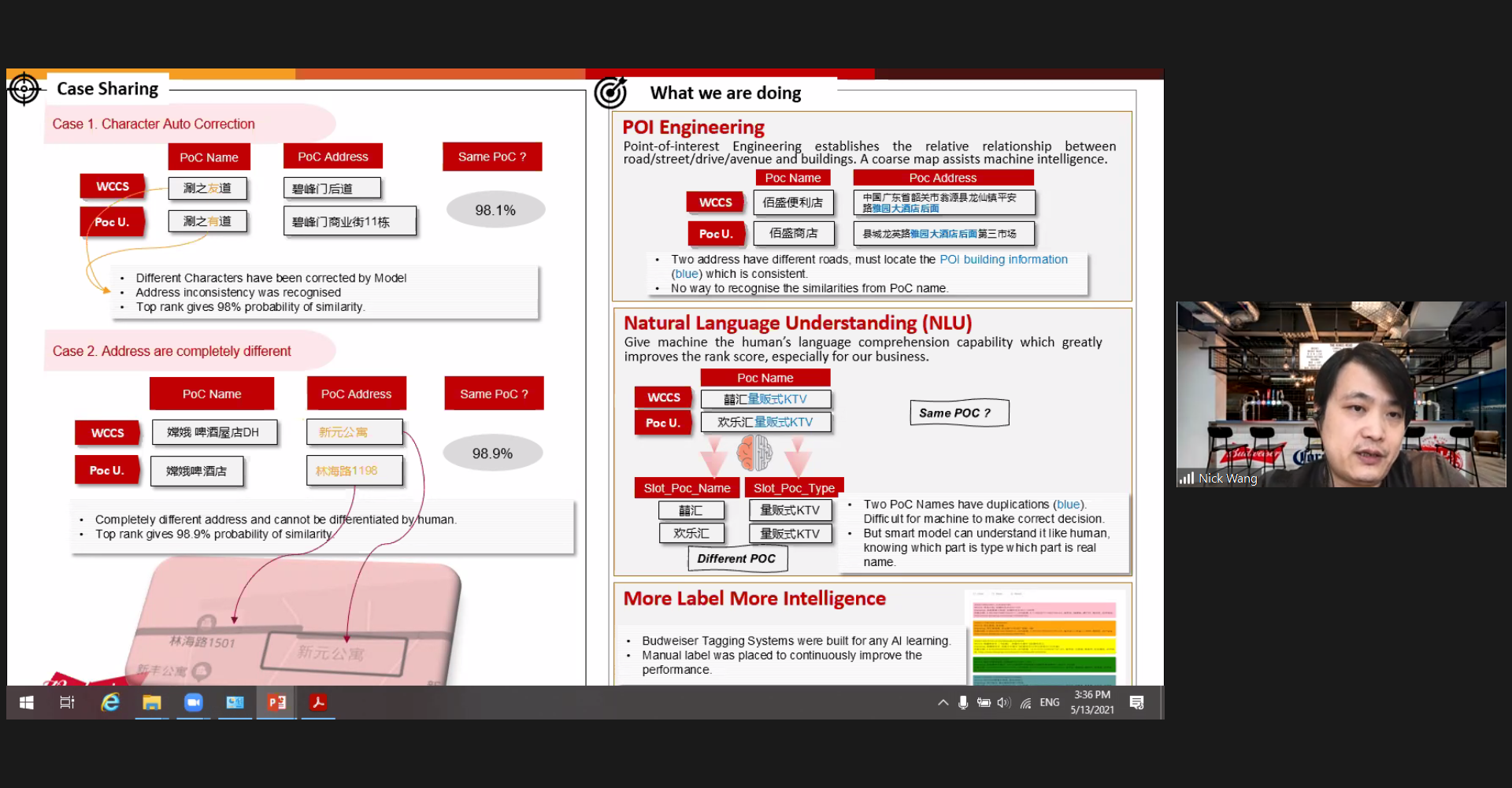
Patrick Lu spoke of managing a company from the technology aspect, from improving internal efficiency to managing traffic costs. He said that it was important for a company to build its data operating system. This type of system requires a combination of business architecture, product architecture, and technology architecture to bring more opportunities for the company to grow faster. To succeed in the era of digital transformation, it was important companies to collect and analyze data in real-time so their consumers could be recommended products that fit their needs, he argued.
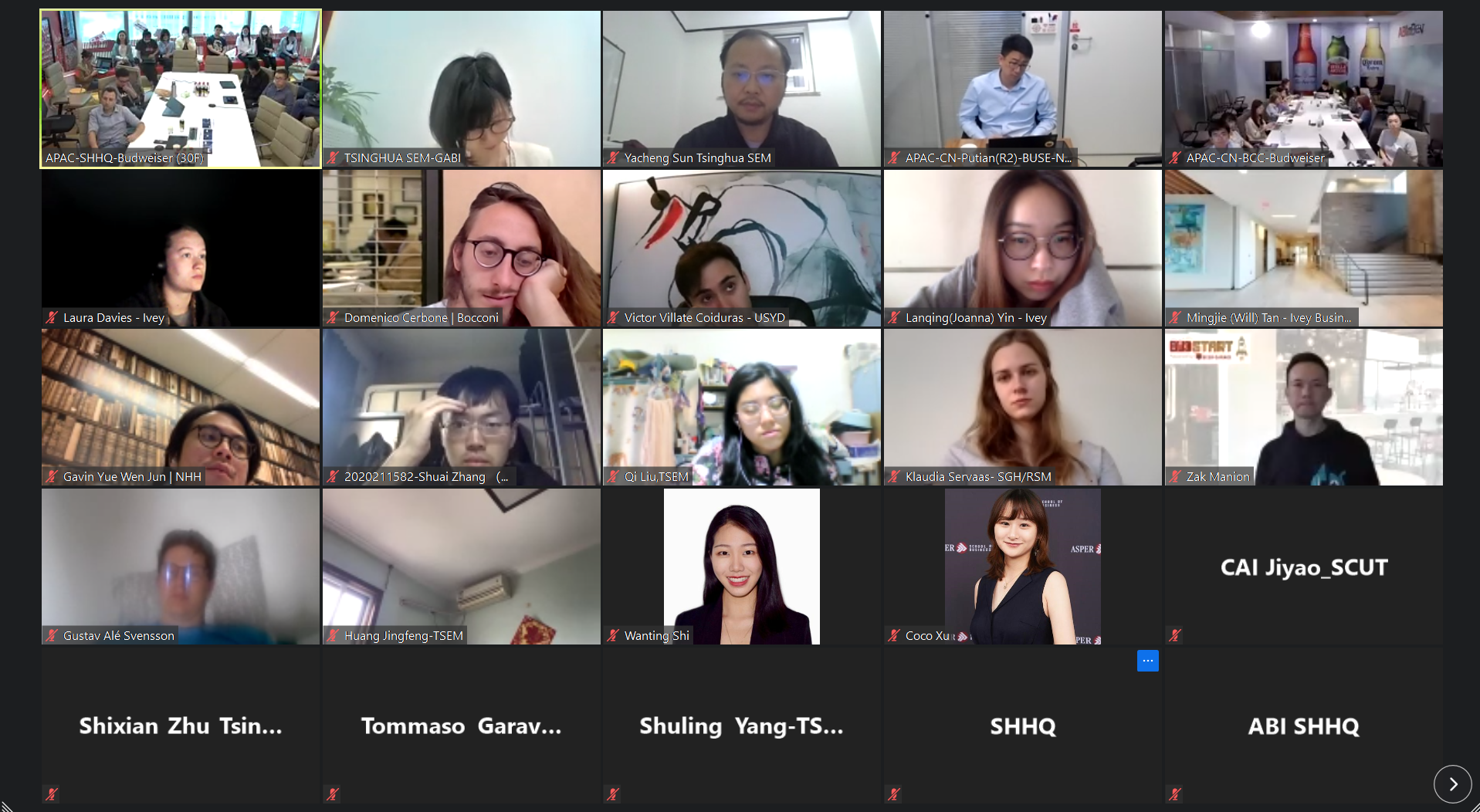
Nick Wang, the Director of Analytics and Data Science team discussed the difficulties Budweiser teams faced during the digital transformation, regarding data collection and analytics. One of the biggest challenges is that data science needs a large amount of high-quality data. Machine learning and big data are used here to make the process more efficient in digital transformations. Some data science examples include collecting data from microblogs and locating the geography of their products.
The seminar concluded following a question-and-answer session, where students inquired about the company's future plans.
Source: School of Economics and Management
Editors: Guo Lili, Sangeet Sangroula

